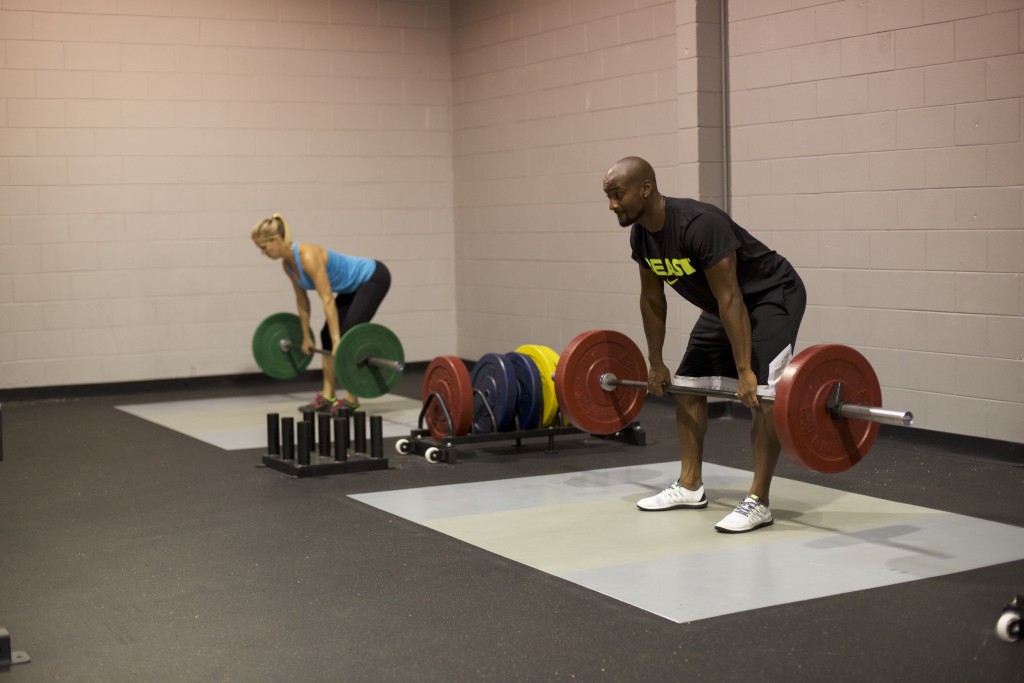LACROSSE OFF-SEASON TRAINING
 By: Craig Acker
By: Craig AckerSports Performance Specialist
SPECTRUM, Inc
Lacrosse is one of the fastest growing sports in Florida, and is now becoming much like all other sports in Florida, one that can be played year round. In order to maximize health and performance in lacrosse there must be dedicated time to physical training. Let’s first define physical training, we’re talking about performing exercises that train the physical qualities that govern sport. The physical qualities that govern sport are mobility/flexibility, strength, speed, agility, and endurance. We are not talking about sport skills training, that being training the skill of the sport (ie. throwing/kicking/swinging).

With most schools/clubs having fall and spring seasons the key physical training time to build speed and strength for a lacrosse athlete is the summer. One barrier to physical training has become what I call the ‘rat race’ of keeping up with the masses. By that I mean constantly doing camps or other leagues for the sport outside of the sport seasons in order to not fall behind. Everyone’s afraid if you’re not playing all the time you’ll get worse or that you have to keep playing to get better. It’s erroneous to think you need to do a league or series of camps in the summer to stay ‘tuned up’, if in fact you’re playing spring and fall seasons. What really needs ‘tuning’ in the summer is body composition, physicality, strength, speed, agility, and conditioning. While staying in tune with sports skills is important, when ‘tuning up’ takes away the opportunity to train physically it’s not the best course of action, both from a health and performance perspective.
Off-season training and year round physical training perspectives are imperative for a lacrosse athlete to maximize their athleticism and prevent overuse injuries. Physical training can serve as a means of “cross training” to promote performance and reduce injuries (training similar motor/physical skills that relate to the sport but are not the sport in itself). Also keep in mind lacrosse is a very physical sport, so not only do athletes need to prepare physically, they need to learn how to handle stress (on the body and mind). Throughout the physical training process there are many opportunities for lacrosse athletes to build their mental toughness, learn how to push through a tough season. Physical training improves one’s readiness to handle stress and ability to handle hot/cold environments, both of which the lacrosse athlete will face.
Finally, consider how you can differentiate yourself to earn a scholarship. Recruiting for college includes knowledge of a recruit’s work ethic and familiarity with the weight room. This can help you stand out to differentiate yourself and earn the scholarship over someone else. So athletes should help themselves by using training experience to be the ‘x’ factor in earning a scholarship. Learn how to train, how to train hard, how to perform lifts, and how to train through the rigors of a season so you have the mental and physical fortitude to play a very physical outdoor sport such as lacrosse. Having confidence and being comfortable in the weight room and impressing the coaches with your work ethic goes a long way.
Physical conditioning becomes an important factor in sport success and health. So let’s make sure we’re dedicating the necessary time for it and not running the ‘rat race’ to just keep playing a sport. Playing the sport non-stop results in physical training being limited or removed (due to time or money). This means the physical tools you actually need to be better at that sport aren’t getting developed… seems counterintuitive doesn’t it? A structured and consistent year round / off-season training program is a staple of any collegiate or professional team due to the clear benefit it provides for better in-season play and injury prevention. We as performance training specialists must notice the gaps and needs presented to us due to the high volume of sport play in youth athletics. If the body is uncoordinated or weak (or becomes so by not physically training in the off season) it is difficult to expect high levels of sport performance, let alone staying injury free.
Great article for all sports!